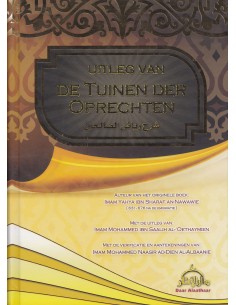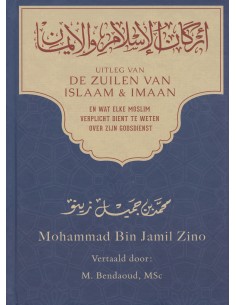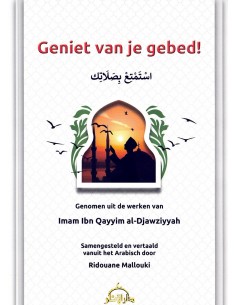Arousing the Intellects with an explanation of Umdatul-Ahkaam (volume 2)
Uitgeverij: Makatabatul Irshad
Taal: Engels
Pagina's: 363 - 1 boek volume 2
Uitvoering: Hardcover
a small excerpt from the book:
Hajj linguistically means: intention.
Legally: To head towards Makkah to perform pilgrimage rituals. Hajj is one of the five pillars of Islam. Proofs of its obligation are found in the Quran, Ḥadīth and the decisive consensus of Muslims. Allāh says,
And Hajj (pilgrimage to Makkah) to the House (Ka'bah) is a duty that mankind owes to Allāh, those who can afford the expenses (for one's conveyance, provision and residence); and whoever disbelieves [i.e. denies Hajj (pilgrimage to Makkah), then he is a disbeliever of Allāh], then Allāh stands not in need of any of the "Alamin (mankind and jinns)." (Al-Imran 97)
Hajj is obligatory to be performed once in one's lifetime, based on the Prophet's saying, “Hajj is obligatory only once in one's lifetime. Whatever one does over and above is supererogatory (a voluntary act) for him. ” Related by Ahmad, an-Nasa’i and this text is originally found in Muslim.
Hajj has been made obligatory after the conquest of Makkah in the ninth or the tenth year (of Hijrah). The wisdom behind the obligation of Hajj is the religious and worldly interests and benefits involved, such as worshiping Allāh by leaving off stitched clothes, avoiding forbidden deeds and utterances, performing Tawwaf, walking between Safa and Marwa mountains, standing on Arafa, spending the night at Muzdalifa and Mina, stoning the Jamarat, and shaving the head. The benefits also include Muslims' gathering and making acquaintances, guiding each other, and implanting love among them and so on.

























